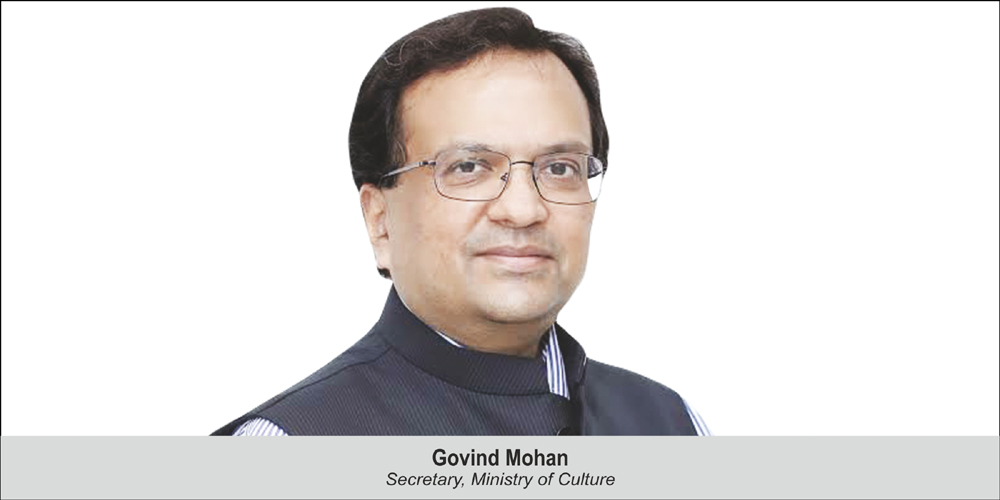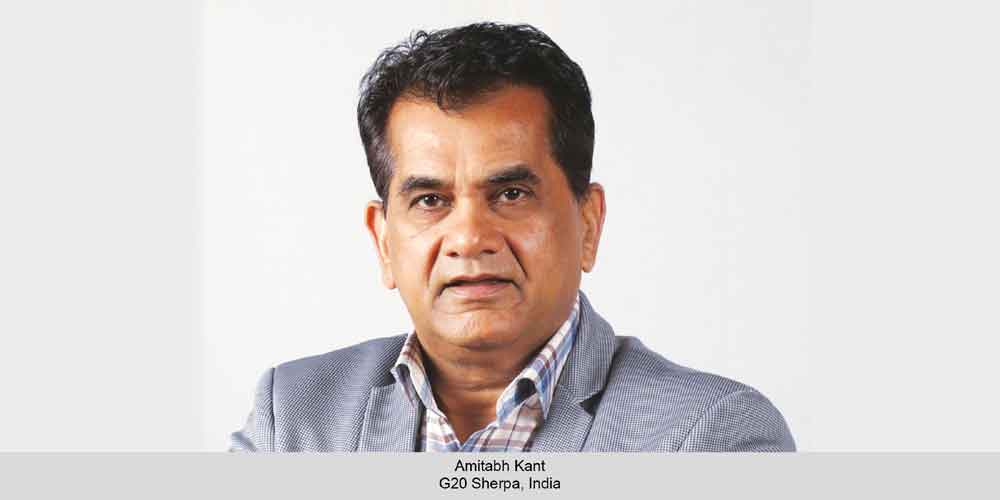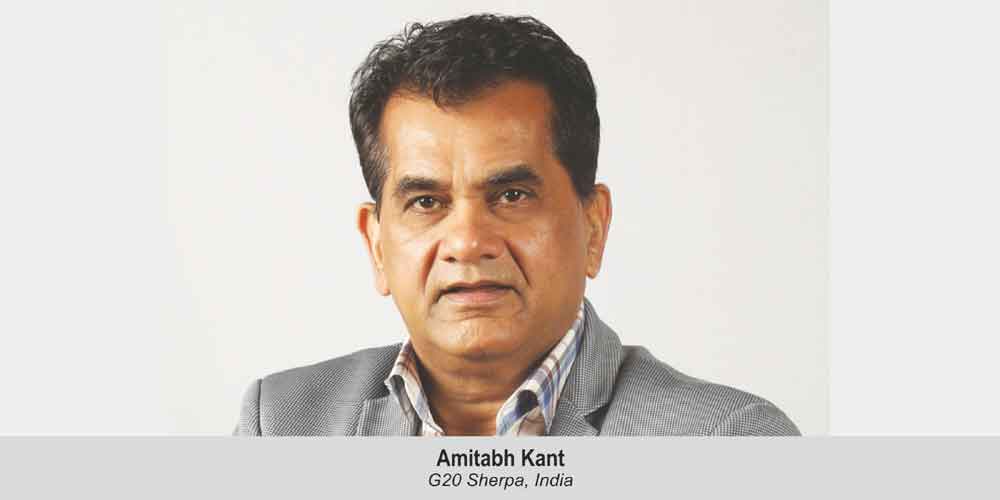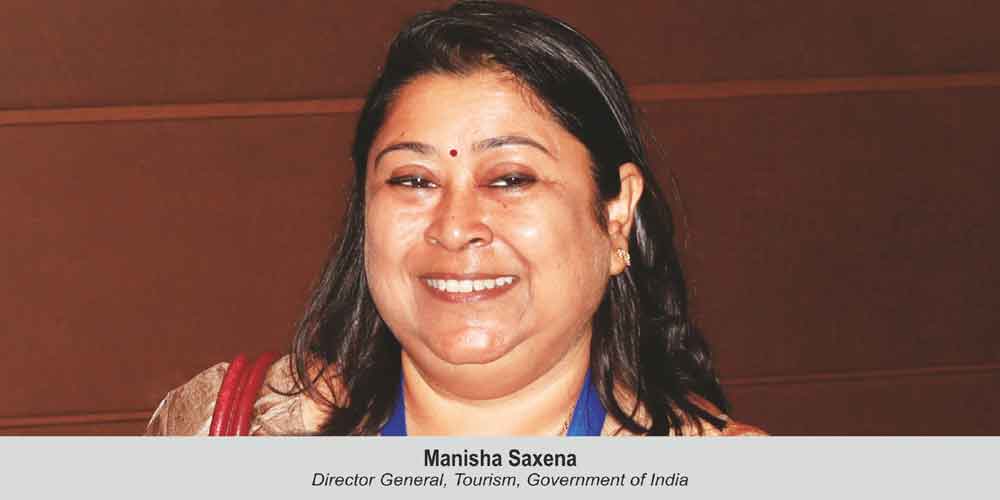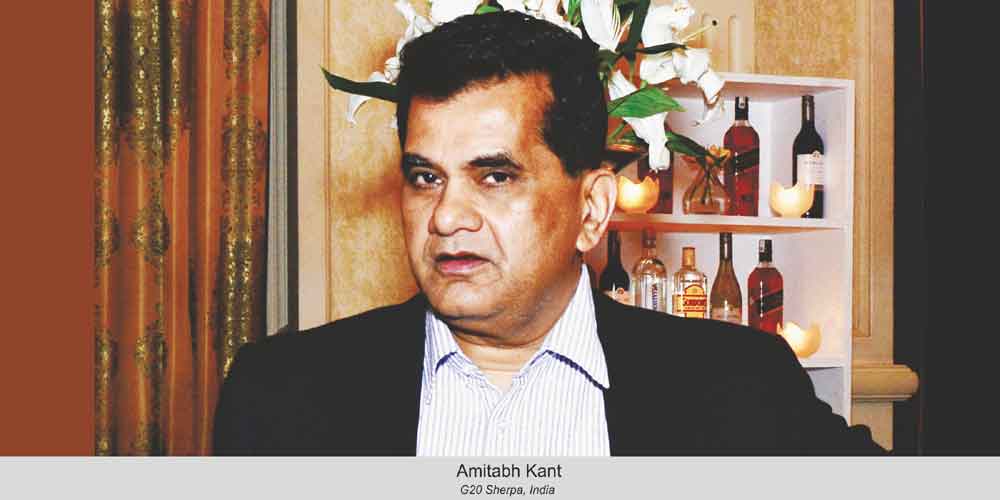Ministry of Culture will formulate a National Culture Policy with a view to develop and improve museums in the country.
Nisha Verma
Speaking at the Global Summit on ‘Reimagining Museums in India’, Govind Mohan, Secretary, Ministry of Culture, said that the museums today are more crucial than ever before as visual communication has become intrinsic to the younger generation. He said, “As India celebrates Azadi ka Amrit Mahotsav with a view to commemorate 75 years of progressive India and the glorious history of its people culture and achievements; the time to rethink the functioning of museums becomes even more pertinent in this national reawakening, where 1.3 billion Indians, especially the young rediscover their evolutionary journey and socio cultural identity. Museums will play a significant role in showcasing this cultural heritage.” Mohan highlighted that through this Summit, Ministry of Culture aims to initiate a dialogue to understand the best approach for developing India’s museums, forging strategic partnerships between Indian and international institutions and drawing a master plan for renewal of Indian museums and to make them truly world-class. “We aim to come up with a standard operating procedure for developing the finest museums worldwide. Under the Azadi ka Amrit Mahotsav, the message of rejuvenation of museums and cultural spaces will continue to play a critical role in the task of nation-building and discharging responsibilities towards character-building of our citizens in the 21st century. Taking forward the vision of the PM of the two T’s –Tradition and Tourism, for India the potential for this development in the museum space is vast and waiting to be unlocked,” he stressed.
He further shared, “Specialists and planners, both have highlighted the need for investment in culture as a national policy, as it is done for Education, Health or infrastructure. This message has been internalised within the Ministry of Culture and we are well on our way to developing a national culture policy with the right growth impetus through policy and markets. The expansion of the museum landscape in India will lead to an exponential increase in income generation and job creation, and culture in general, and museums specifically will become a major driver of economic growth.”
He shared that earlier the role of Ministry of Culture in promoting museums wasz mostly restricted to providing financial assistance under two schemes—the museum Grant scheme and the scheme for promotion of the culture of science.
“We want to go beyond this now with a renewed mandate of modernisation, upgradation and establishment of new museums. We aim to bring our institutions closer to international standards of Museology, which are relevant for the 21st century. Broadly, The areas that need renewed attention is the management of museums with highest standards of professionalism and best practices education in audience engagement, development of capacity and skills and the sustainable growth of museums,” he highlighted.
He suggested that there is a need to facilitate strategic partnerships and collaborations, develop capacities for heritage professionals, and develop an ecosystem for a robust network of stakeholders to engage in this sector. Putting stress on the digitalisation in the post-pandemic world, he claimed, “In the new normal ushered in, by COVID-19, the digital has emerged as the most important space for engagement in the museum sector. The use of digital technology to enhance user experience is however, not limited to just artificial reality or virtual reality – AR and VR, But it is to widen, public access through modernisation and digitisation of collections and exhibitions.
We have seen extensive use of technology for enhanced user experience and engagement in our national museum in Delhi and advanced projection mapping at the Victoria Memorial Hall Kolkata and also the National Gallery of modern Art’s New Delhi,” he pointed out.
He claimed that while India has a vast number of museums, they have so far received limited attention from international or even domestic tourists, educational entities or private stakeholders.
“We feel that there is an urgent need to significantly improve the visibility of these spaces through marketing and outreach initiatives to attract visitors, increase both public and private investment, improve livelihoods, generate employment and ideally ensure longevity and sustainability for museums,” he said.
He concluded, “Museums in India today need to create a sustainable future by taking care of their core assets and collections and ensuring that the museum continues to be relevant and valuable to future generations.
The reimagining museums in India Summit expects to illustrate and discuss best practices from India and abroad, which can create conditions that will integrate the global museum community with some of India’s, most significant cultural institutions and museum spaces. I envisage that 2022, which marks 75 years of India’s independence will see immense growth and development of the museum sector in India.”
It is said that there is nothing more powerful than an idea whose Time Has Come. reimagining, museums, is India in India is indeed such an idea.
 TravTalk India Online Magazine
TravTalk India Online Magazine

